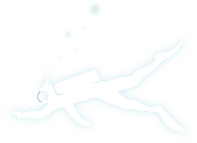Frequently Asked Diving Questions
Click on the questions below to read answers to some of our frequently asked questions. Got a question we haven’t answered below? We’d love to help. Contact us with your questions.
Where is the best place to dive?
Can you imagine swimming along a reef for 30 minutes where every inch of the reef is covered by the most brilliant colors you have ever seen; blankets of strawberry anemones, giant white-plumed anemones, a variety of star fish, including huge sun stars; huge barnacles, basketball-sized crabs, nudibranchs, sponges, snails, and sea cucumbers?
California diving never disappoints, but then again, how can you argue with unlimited visibility and 80 degree water?
Do I need to be a great swimmer to be able to SCUBA dive?
Why should I learn to SCUBA dive?
What do you learn in a SCUBA class?
Does SCUBA diving hurt your ears?
How old should you be to SCUBA dive?
No upper age limit for SCUBA diving exists.
As a general rule, children aged 10 and above may SCUBA dive, depending upon their maturity level. Special children’s programs conducted in shallow and confined water, with controlled conditions for children age 10 and above exists. Many physicians trained in diving medicine feel that it is wise for adolescents to wait until an age when long-bone growth is complete before considering diving.
What is the Learn To Dive Program like?
What SCUBA equipment do I need to buy to get my Open Water Diver certification?
What is the difference between SSI and PADI Scuba Diving Class certification? SSI, PADI, NAUI, CMAS, SDI, IDEA, MDEA, NASE, IANTD, etc.
SSI and PADI Scuba diving classes are the most popular certification agencies in the world and are both members of the Worldwide Recreational SCUBA Training Council (WRSTC) and ISO. While they are separate agencies, they both adhere to all WRSTC standards for their minimum training requirements, and both are internationally recognized. Being separate businesses, they operate differently and have different business models, but they give the same training and certification.
After I'm certified, where can I dive?
How much does diving cost?
Compared with getting started in other popular outdoor activities, learning to dive isn’t expensive. For example, you can expect to pay about the same as you would for:
- a day on the slopes
- a full day of surfing lessons
- a weekend of kayaking lessons
- a weekend of fly-fishing lessons
- three private golf lessons
- three hours of private water skiing lessons
Learning to dive is a great value when you consider that your BDS Staff Instructor is a highly trained and experienced professional. Invest in scuba diving lessons and then travel the world with the BDS Sub Club.

